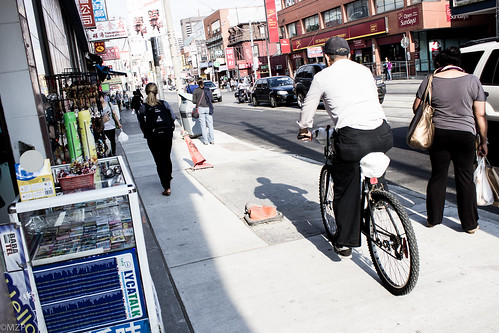過敏、氣喘與第一型糖尿病等各種自體免疫疾病(Autoimmune disease),在過去50年間越來越普遍,尤其是在都會地區。赫爾辛基大學環境科學博士Aki Sinkkonen指出,過敏和自體免疫疾病的攀升,和人類活動造成的汙染、衛生水準提昇和環境生物多樣性減少有關。
現在,有研究團隊正在試著找出改善都市人免疫系統的方法。
Sinkkonen主持的跨領域自體免疫防禦與生活環境計畫(ADELE)探討如何從醫療和都市計畫兩種領域著手,解決過敏問題和其他免疫系統疾病。
「在工業化國家,高達1/5人口有嚴重的免疫系統疾病。光是歐盟,每年免疫系統疾病支出總額超過1千億歐元。」這個研究計畫結合都市計畫、最新醫學和環境生態的研究結果、開發糖尿病疫苗所累積的經驗、生物多樣性研究和豐富的人口調查,目標之一是研發出商業化產品。Sinkkonen說。
赫爾辛基大學、坦佩雷大學、芬蘭坦佩雷科技大學、奧盧大學、圖爾庫大學、捷克、美國乃至企業界和新成立的芬蘭自然資源研究所,都有研究團隊參與ADELE計畫。
芬蘭創新資金機構Tekes捐出250萬歐元,用於5年期研究計畫的第一個2年半研究階段。
芬蘭自然資源研究所於2015年1月1日開始運作,在芬蘭農林業部資料中心的統計服務支援下,結合多間國立研究機構的跨領域專家──芬蘭MTT農業食品研究所、芬蘭森林研究所和芬蘭狩獵漁業研究所。
自然資源研究所執行長Mari Walls說,這些新興機構擁有豐富的資料,期望開啟新的研究途徑。Walls也表示,新研究機構的任務是推廣具競爭力、而且以永續使用再生自然資源為基礎的商業活動。
Allergies and numerous autoimmune diseases, such as asthma and type 1 diabetes, have become more common in the past 50 years, especially in urban environments. Now a new research team is working to help the human immune system function better in cities.
The recent rise in allergies and autoimmune diseases is caused by pollutants from human activities, a higher level of hygiene and the reduced biological diversity of our living environment, says Dr. Aki Sinkkonen of the University of Helsinki Department of Environmental Sciences.
Dr. Sinkkonen runs the multidisciplinary Autoimmune Defense and Living Environment, ADELE, project, which studies new ways to help the human immune system function better in cities.
The new international research project attempts to find solutions to allergies and other immune defense disorders using methods from both medicine and urban design.
“Up to one-fifth of the population in industrialized countries suffers from serious disorders of the immune system. In the EU alone, the annual expenses of these disorders have been estimated to total over 100 billion euros,” says Dr. Sinkkonen.
“The project combines urban design with the latest results from medicine and environmental ecology. We will also benefit from the experiences accumulated while developing a diabetes vaccine, as well as from biodiversity research and various population surveys,” he explains. “One of the goals is to create commercial products.”
Tekes, the Finnish Funding Agency for Innovation, has granted 2.5 million euros to be distributed over a period of two and a half years for the first phase of the five-year project.
The ADELE project involves research groups from the University of Helsinki, the University of Tampere and the Tampere University of Technology in Finland, as well as experts from the business world, the Universities of Oulu and Turku, the Czech Republic and the United States.
The new Natural Resources Institute Finland is also participating in the ADELE project.
The new institute began operations January 1, bringing together the cross-disciplinary expertise of several state research institutes – MTT Agrifood Research Finland, the Finnish Forest Research Institute and the Finnish Game and Fisheries Research Institute – with the statistical services of the Information Centre of the Ministry of Agriculture and Forestry.
The data held by these merging agencies are an enormous resource that open new avenues for research, said the institute’s President and CEO Mari Walls.
She says the task of the new institute is to promote competitive business activities based on the sustainable use of renewable natural resources.
※ 全文及圖片詳見:ENS



